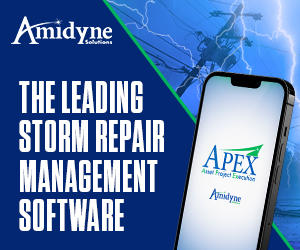As economy-wide carbon reductions around the world are shifting from aspiration to expectation, there will be a greater need for collaborative research and investment to bring new clean energy technologies from lab to market, EPRI CEO Arshad Mansoor outlined today (Jan 13) during his State of the Industry address.
Because many sectors of the economy including transportation, buildings, and industry could largely reduce carbon emissions through electrification, the electric sector will play a crucial role in achieving the net zero goals announced by corporations and governments around the world.
"Electricity is the tip of the clean energy spear, but to achieve economy-wide net zero by 2050 requires foresight with comprehensive modeling and planning, global, collaborative innovation, and backed by supportive policy and regulation," said Mansoor. EPRI is working with research partners, energy stakeholders and government agencies to drive innovation and help identify affordable and reliable carbon reduction pathways for industry and government to use as a roadmap.
Carbon reductions beyond 2030 will require technologies and approaches that will be viable this decade, including carbon capture and storage, low-carbon energy carriers and nuclear power. "The infrastructure bill recently signed into law makes historic investments that will help drive essential research and development for clean energy technologies that need to be produced at scale if we're to reach net zero," he noted.
To accelerate the development and demonstration of low- and zero-carbon energy technologies, EPRI and the Gas Technology Institute launched the Low-Carbon Resources Initiative (LCRI) in 2020. LCRI has more than 50 participating global organizations, and in October 2021 launched its first demonstration project with the New York Power Authority to test blending renewable hydrogen with natural gas in a turbine.
"There's no silver bullet that will meet global decarbonization targets, but will require using clean energy technologies available today and supporting technologies of the future," he added. EPRI remains committed to its work, bringing together stakeholders to ensure the clean energy transition is equitable and sustainable, while keeping electricity resilient, affordable, and reliable for consumers in the U.S. and around the world.
Contact
Rachel Gantz
Media Relations Advisor
202-293-7517
rgantz@epri.com
Founded in 1972, EPRI is the world's preeminent independent, non-profit energy research and development organization, with offices around the world. EPRI's trusted experts collaborate with more than 450 companies in 45 countries, driving innovation to ensure the public has clean, safe, reliable, affordable, and equitable access to electricity across the globe. Together, we are shaping the future of energy.










